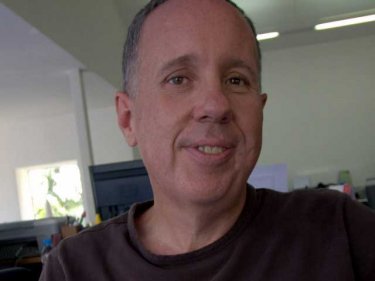PHUKET is the golden destination right now, the place that other places want to be. Bali, Vietnam, Samui, the Philippines, they are all looking on at the Phuket model with envy.
That, says Bill Barnett, perhaps the island's one true property and hospitality industry guru, is great for business and Phuket's future.
'It's nice to see the resort chains coming,'' he says. ''It's nice to bring Phuket to the world.
''Whether we like it or not, the property industry is pretty important now and actually driving recognition of Phuket.''
For Barnett, managing director of C9 Hotelworks, the asset management and hospitality consulting group, the island's attraction is personal as well as professional.
The past six years of his 22 years in Asia have been spent on Phuket, and he shows no desire to move on, despite his wanderer's past.
California, Hawaii, Alaska, Papau New Guinea, Vietnam, India, the Philippines, Hong Kong, Singapore . . . if there is a better place to live in Asia or the Pacific, Barnett must have overlooked it somehow.
Phuket, it seems, is the world's leading golden straw-hut hub.
''You have to like the door to door access,'' he says. ''The lifestyle here is easy to like, but there is also the access to the bigger picture, being able to jump on a plane six or seven times a day to Bangkok, being able to fly to Singapore and Hong Kong.
''And the facilities here are first-rate. Excellent medical care, good golf courses. It's a great place to do business.''
Barnett is wearing shorts and a tee-shirt in his office, near the entrance to Laguna Phuket. The lack of a tie, not to mention socks and shoes, says a lot about the difference between Phuket and big-city living.
''I used to travel 150,000 miles a year in a hotel corporate job from Hong Kong,'' Barnett says. ''I don't want to go back to that.''
He came to Phuket as deputy managing director of Laguna Phuket and helped to steer the island's largest resort into property development.
If there is one big trend in real estate, that's the one: resorts with their own property arm. While Barnett has partnered a couple of villa developments, resorts and their brand differentiation remain his prime interest.
''My main trade is hospitality,'' he says. ''Over the years, we've done a lot of consulting here in Phuket and I think we've bought a lot of brands to the island.''
Mixed-use development remains, he says, a key to the future of resorts on the island.
''It's huge,'' he says. ''Traditionally, hotels are very capital-intense. Getting your money back takes a long time.
''As part hotel and part residential, you can split the risk. Any time you can diversify the risk is important.
''It also means that you're borrowing less money from the banks for the entire project.
''In the US before sub-prime, one in every four sales was for a second home or a holiday home.''
The Phuket market, he believes, is a new paradigm, perhaps a golden straw-hut lined with silver, or maybe even with platinum trimmings.
''Phuket is an extraordinary market, anomalous with the rest of Asia,'' Barnett says. ''If you go to places like Bangkok or Hua Hin or Pattaya, there's tremendous domestic content, leveraged with Thai banks.
''About 60 or 70 pecent lies with the domestic market. On Phuket, 90-95 percent of the high-end real estate is paid for in cash.
''Tomorrow, if the market flattened out or went down, it means these buyers are not going to be forced to sell because they own those units.
''While prices on Phuket may flatten out, they are not going to retreat substantially. So it's a golden market like that.
''The fundamentals of the market are good. It's not built on speculation. Most of what you see being built on Phuket is already paid for.''
Five years ago, property sold because people wanted to live on the island. That's less the case these days.
''We've seen a different investor over the past five years,'' he says. ''New people are really speculating more and looking at capital appreciation and the investment yield.''
While that poses the risk of having lots of vacant properties during the low season and the shoulders between seasons, it's essentially a sign of a healthy economy for everyone.
''As the island grows more congested, people will move to where they can work, closer to work,'' he says. So there are more affordable housing developments going up, too.
He says that with 400 developments on the island, the middle market probably could use a push.
What do the authorities need to do to keep Phuket a golden destination?
''Infrastructure . . . so much is being done by the private sector.
''We still have overhead power lines, and problems with garbage, drainage and traffic. A really efficient north-south traffic link is important. And if you look at the airport, you can't even find room to park there any more.''
Phuket, he believes, will probably have to sort out many of its own problems because it's a stronghold for the opposition Democrat Party. ''You don't see money put back into the island except through private companies.''
That, says Bill Barnett, perhaps the island's one true property and hospitality industry guru, is great for business and Phuket's future.
'It's nice to see the resort chains coming,'' he says. ''It's nice to bring Phuket to the world.
''Whether we like it or not, the property industry is pretty important now and actually driving recognition of Phuket.''
For Barnett, managing director of C9 Hotelworks, the asset management and hospitality consulting group, the island's attraction is personal as well as professional.
The past six years of his 22 years in Asia have been spent on Phuket, and he shows no desire to move on, despite his wanderer's past.
California, Hawaii, Alaska, Papau New Guinea, Vietnam, India, the Philippines, Hong Kong, Singapore . . . if there is a better place to live in Asia or the Pacific, Barnett must have overlooked it somehow.
Phuket, it seems, is the world's leading golden straw-hut hub.
''You have to like the door to door access,'' he says. ''The lifestyle here is easy to like, but there is also the access to the bigger picture, being able to jump on a plane six or seven times a day to Bangkok, being able to fly to Singapore and Hong Kong.
''And the facilities here are first-rate. Excellent medical care, good golf courses. It's a great place to do business.''
Barnett is wearing shorts and a tee-shirt in his office, near the entrance to Laguna Phuket. The lack of a tie, not to mention socks and shoes, says a lot about the difference between Phuket and big-city living.
''I used to travel 150,000 miles a year in a hotel corporate job from Hong Kong,'' Barnett says. ''I don't want to go back to that.''
He came to Phuket as deputy managing director of Laguna Phuket and helped to steer the island's largest resort into property development.
If there is one big trend in real estate, that's the one: resorts with their own property arm. While Barnett has partnered a couple of villa developments, resorts and their brand differentiation remain his prime interest.
''My main trade is hospitality,'' he says. ''Over the years, we've done a lot of consulting here in Phuket and I think we've bought a lot of brands to the island.''
Mixed-use development remains, he says, a key to the future of resorts on the island.
''It's huge,'' he says. ''Traditionally, hotels are very capital-intense. Getting your money back takes a long time.
''As part hotel and part residential, you can split the risk. Any time you can diversify the risk is important.
''It also means that you're borrowing less money from the banks for the entire project.
''In the US before sub-prime, one in every four sales was for a second home or a holiday home.''
The Phuket market, he believes, is a new paradigm, perhaps a golden straw-hut lined with silver, or maybe even with platinum trimmings.
''Phuket is an extraordinary market, anomalous with the rest of Asia,'' Barnett says. ''If you go to places like Bangkok or Hua Hin or Pattaya, there's tremendous domestic content, leveraged with Thai banks.
''About 60 or 70 pecent lies with the domestic market. On Phuket, 90-95 percent of the high-end real estate is paid for in cash.
''Tomorrow, if the market flattened out or went down, it means these buyers are not going to be forced to sell because they own those units.
''While prices on Phuket may flatten out, they are not going to retreat substantially. So it's a golden market like that.
''The fundamentals of the market are good. It's not built on speculation. Most of what you see being built on Phuket is already paid for.''
Five years ago, property sold because people wanted to live on the island. That's less the case these days.
''We've seen a different investor over the past five years,'' he says. ''New people are really speculating more and looking at capital appreciation and the investment yield.''
While that poses the risk of having lots of vacant properties during the low season and the shoulders between seasons, it's essentially a sign of a healthy economy for everyone.
''As the island grows more congested, people will move to where they can work, closer to work,'' he says. So there are more affordable housing developments going up, too.
He says that with 400 developments on the island, the middle market probably could use a push.
What do the authorities need to do to keep Phuket a golden destination?
''Infrastructure . . . so much is being done by the private sector.
''We still have overhead power lines, and problems with garbage, drainage and traffic. A really efficient north-south traffic link is important. And if you look at the airport, you can't even find room to park there any more.''
Phuket, he believes, will probably have to sort out many of its own problems because it's a stronghold for the opposition Democrat Party. ''You don't see money put back into the island except through private companies.''




